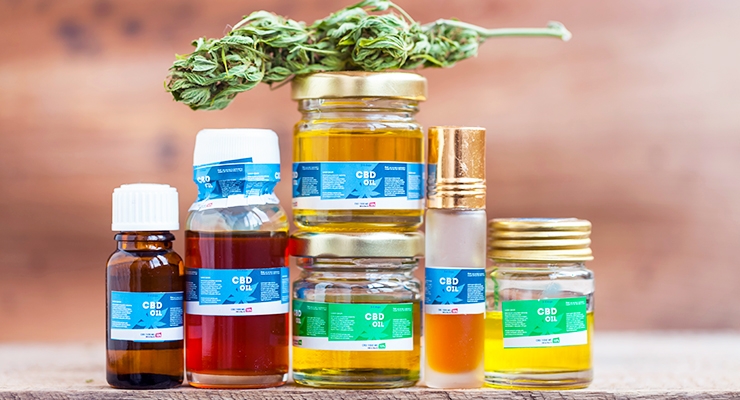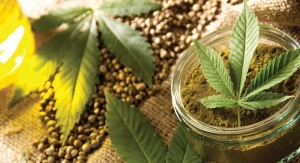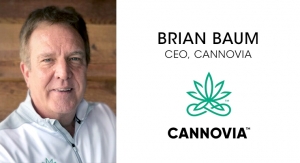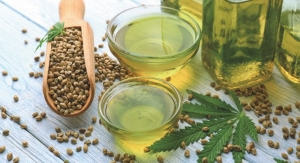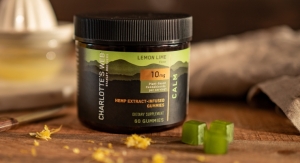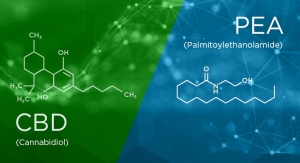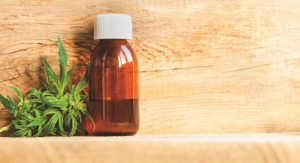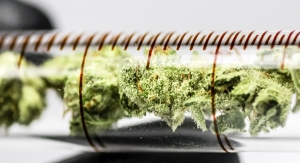By Todd Harrison, Venable09.09.19
The FDA continues to struggle with how to regulate CBD and hemp extracts. What was thought by some to be a pivotal meeting on the issue on May 31 only served to create further chaos in the marketplace.
Major retailers simply did not get the assurances they wanted from FDA that moving forward with CBD-containing dietary supplement or food products was worth the venture. Similarly, the credit-card processors did not get the assurance they desired. Consumers still seem confused as to what exactly is hemp, marijuana, CBD, etc. The pharmaceutical industry repeated its concerns that the integrity of the drug approval process must be protected—a position reiterated by Congress in a letter to FDA.
Industry offered no real solutions, only platitudes; but then again why should it offer anything to FDA. Indeed, CBD/hemp food and dietary supplement products have exploded even though FDA has consistently stated the products are not lawfully marketed because of the presence of CBD. FDA continues to search for a way out of its predicament, urging stakeholders to provide the necessary safety information confirming CBD is safe to be consumed on a daily basis, and how to make it available to the general public through the rulemaking process.
In the meantime, the states have started to make their opinions known, whether through policy statements or laws. Texas, understanding the economic boom that hemp and CBD could have to its economy, passed one of the most liberal laws regarding this issue. Yet, New York state and New York City have made it clear that CBD will not be allowed in food until FDA states that it’s OK.
Massachusetts has similarly come down hard on CBD-containing products. Yet, this freight train appears to have left the station, and nobody seems to understand how to tame it.
The Pathway Exists Already
I was originally highly skeptical about the CBD market. I was certain that like all other ingredients it would peak then die. My own opinion on the legality of CBD and hemp products has also evolved. While I believe there’s still a significant amount of spurious legal arguments—including the claim that Phase I and II clinical trials do no constitute the institution of significant clinical trials—I believe there is a path forward for FDA and industry.
First, however, it requires FDA to abandon its rather obtuse positon that the preclusion provisions found in Sections 201(ff)(3) and 301(ll)(3) of the Federal Food, Drug and Cosmetic Act necessarily exclude the use of CBD-containing hemp extracts from being marketed as either food or dietary ingredients. This narrow thinking has hamstrung the agency from actually moving forward with a more reasoned approach.
Indeed, if FDA would follow its own position as to what constitutes the article that is a drug or the drug itself, the agency could simply announce the pathway forward, rather than inventing a convoluted regulatory process that would likely take years to implement.
The pathways, both on the dietary supplement and food sides, already exist. But first let’s deal with that pesky issue as to what constitutes the “article” or “drug” (collectively, “the drug”) that is either the subject of substantial clinical investigation (and for dietary supplements an Investigational New Drug) or FDA drug approval prior to introduction into the food supply or as part of a dietary ingredient.
More specifically, FDA itself has acknowledged that Epidiolex is not a botanical. Moreover, FDA acknowledged that a drug is necessarily defined by its intended use. In this regard, the agency defined a “drug” studied under IND to have very specific attributes related to its active ingredient, pharmacological class, structural formula, formulation of the dosage form to be used, and route of administration (see 21 C.F.R. 312.23).
In this regard, simply comparing the drug that has been approved by FDA, Epidiolex, and the drug that is still under clinical investigation, Sativex, it becomes abundantly clear that a broad spectrum hemp extract is not precluded under Section 201(ff)(3) or 301(ll)(3), as it does not in any manner resemble these two drugs. Indeed, one only has to do a side by side comparison of the three ingredients to conclude that each is uniquely different and that hemp extracts that contain low levels of CBD simply do not resemble either of these drugs.
To Congress, I would simply state that the availability of fish oil certainly did not stop pharmaceutical companies from investigating its use as a drug. At best, this argument that CBD-containing hemp extracts will somehow impact drug development is simply without merit. If there is economic and medical value to get a hemp extract that contains CBD approved, the pharmaceutical industry will pursue it, just as it did fish oil.
So, where does that leave us today? There are several processes that can be utilized to market CBD and hemp extracts. On the dietary supplement side, the filing of a New Dietary Ingredient Notification (NDIN) with FDA is one pathway. Another is to file a petition with FDA requesting an order that the product may be marketed as a dietary ingredient after a showing that it has reasonable expectation of safety. On the food side, the Generally Recognized As Safe (GRAS) notification process exists as well as the food additive petition; both require showing that the ingredients are safe.
The Box is Open
In other words, there is ample regulatory processes already in place which do not require potentially years of regulatory wrangling that will simply slow the process. FDA must evolve its thinking and stop hiding behind preclusion and the concern that Pandora’s box will be open. Here’s a news flash: it is already opened and the flood gates have been let loose. It’s time to think outside the proverbial lock box that regulatory agencies prefer and get moving on this one. It is time for this process to move forward rather than stagnate, which keeps a cloud over the food and dietary supplement products that contain CBD and only serves to make plaintiff attorneys wealthy in the end.
No, just because the public demands an ingredient, doesn’t mean it should be legalized. However, if the ingredient can be shown to be GRAS for use in food and a reasonable likelihood of safety in dietary supplements, FDA must allow the ingredient to be marketed, and FDA already has the process to do so in place.
Todd Harrison
Venable
Todd Harrison is partner with Venable, which is located in Washington, D.C. He advises food and drug companies on a variety of FDA and FTC matters, with an emphasis on dietary supplement, functional food, biotech, legislative, adulteration, labeling and advertising issues. He can be reached at 575 7th St. NW, Washington, D.C. 20004, Tel: 202-344-4724; E-mail: taharrison@venable.com.
Major retailers simply did not get the assurances they wanted from FDA that moving forward with CBD-containing dietary supplement or food products was worth the venture. Similarly, the credit-card processors did not get the assurance they desired. Consumers still seem confused as to what exactly is hemp, marijuana, CBD, etc. The pharmaceutical industry repeated its concerns that the integrity of the drug approval process must be protected—a position reiterated by Congress in a letter to FDA.
Industry offered no real solutions, only platitudes; but then again why should it offer anything to FDA. Indeed, CBD/hemp food and dietary supplement products have exploded even though FDA has consistently stated the products are not lawfully marketed because of the presence of CBD. FDA continues to search for a way out of its predicament, urging stakeholders to provide the necessary safety information confirming CBD is safe to be consumed on a daily basis, and how to make it available to the general public through the rulemaking process.
In the meantime, the states have started to make their opinions known, whether through policy statements or laws. Texas, understanding the economic boom that hemp and CBD could have to its economy, passed one of the most liberal laws regarding this issue. Yet, New York state and New York City have made it clear that CBD will not be allowed in food until FDA states that it’s OK.
Massachusetts has similarly come down hard on CBD-containing products. Yet, this freight train appears to have left the station, and nobody seems to understand how to tame it.
The Pathway Exists Already
I was originally highly skeptical about the CBD market. I was certain that like all other ingredients it would peak then die. My own opinion on the legality of CBD and hemp products has also evolved. While I believe there’s still a significant amount of spurious legal arguments—including the claim that Phase I and II clinical trials do no constitute the institution of significant clinical trials—I believe there is a path forward for FDA and industry.
First, however, it requires FDA to abandon its rather obtuse positon that the preclusion provisions found in Sections 201(ff)(3) and 301(ll)(3) of the Federal Food, Drug and Cosmetic Act necessarily exclude the use of CBD-containing hemp extracts from being marketed as either food or dietary ingredients. This narrow thinking has hamstrung the agency from actually moving forward with a more reasoned approach.
Indeed, if FDA would follow its own position as to what constitutes the article that is a drug or the drug itself, the agency could simply announce the pathway forward, rather than inventing a convoluted regulatory process that would likely take years to implement.
The pathways, both on the dietary supplement and food sides, already exist. But first let’s deal with that pesky issue as to what constitutes the “article” or “drug” (collectively, “the drug”) that is either the subject of substantial clinical investigation (and for dietary supplements an Investigational New Drug) or FDA drug approval prior to introduction into the food supply or as part of a dietary ingredient.
More specifically, FDA itself has acknowledged that Epidiolex is not a botanical. Moreover, FDA acknowledged that a drug is necessarily defined by its intended use. In this regard, the agency defined a “drug” studied under IND to have very specific attributes related to its active ingredient, pharmacological class, structural formula, formulation of the dosage form to be used, and route of administration (see 21 C.F.R. 312.23).
In this regard, simply comparing the drug that has been approved by FDA, Epidiolex, and the drug that is still under clinical investigation, Sativex, it becomes abundantly clear that a broad spectrum hemp extract is not precluded under Section 201(ff)(3) or 301(ll)(3), as it does not in any manner resemble these two drugs. Indeed, one only has to do a side by side comparison of the three ingredients to conclude that each is uniquely different and that hemp extracts that contain low levels of CBD simply do not resemble either of these drugs.
To Congress, I would simply state that the availability of fish oil certainly did not stop pharmaceutical companies from investigating its use as a drug. At best, this argument that CBD-containing hemp extracts will somehow impact drug development is simply without merit. If there is economic and medical value to get a hemp extract that contains CBD approved, the pharmaceutical industry will pursue it, just as it did fish oil.
So, where does that leave us today? There are several processes that can be utilized to market CBD and hemp extracts. On the dietary supplement side, the filing of a New Dietary Ingredient Notification (NDIN) with FDA is one pathway. Another is to file a petition with FDA requesting an order that the product may be marketed as a dietary ingredient after a showing that it has reasonable expectation of safety. On the food side, the Generally Recognized As Safe (GRAS) notification process exists as well as the food additive petition; both require showing that the ingredients are safe.
The Box is Open
In other words, there is ample regulatory processes already in place which do not require potentially years of regulatory wrangling that will simply slow the process. FDA must evolve its thinking and stop hiding behind preclusion and the concern that Pandora’s box will be open. Here’s a news flash: it is already opened and the flood gates have been let loose. It’s time to think outside the proverbial lock box that regulatory agencies prefer and get moving on this one. It is time for this process to move forward rather than stagnate, which keeps a cloud over the food and dietary supplement products that contain CBD and only serves to make plaintiff attorneys wealthy in the end.
No, just because the public demands an ingredient, doesn’t mean it should be legalized. However, if the ingredient can be shown to be GRAS for use in food and a reasonable likelihood of safety in dietary supplements, FDA must allow the ingredient to be marketed, and FDA already has the process to do so in place.
Todd Harrison
Venable
Todd Harrison is partner with Venable, which is located in Washington, D.C. He advises food and drug companies on a variety of FDA and FTC matters, with an emphasis on dietary supplement, functional food, biotech, legislative, adulteration, labeling and advertising issues. He can be reached at 575 7th St. NW, Washington, D.C. 20004, Tel: 202-344-4724; E-mail: taharrison@venable.com.

